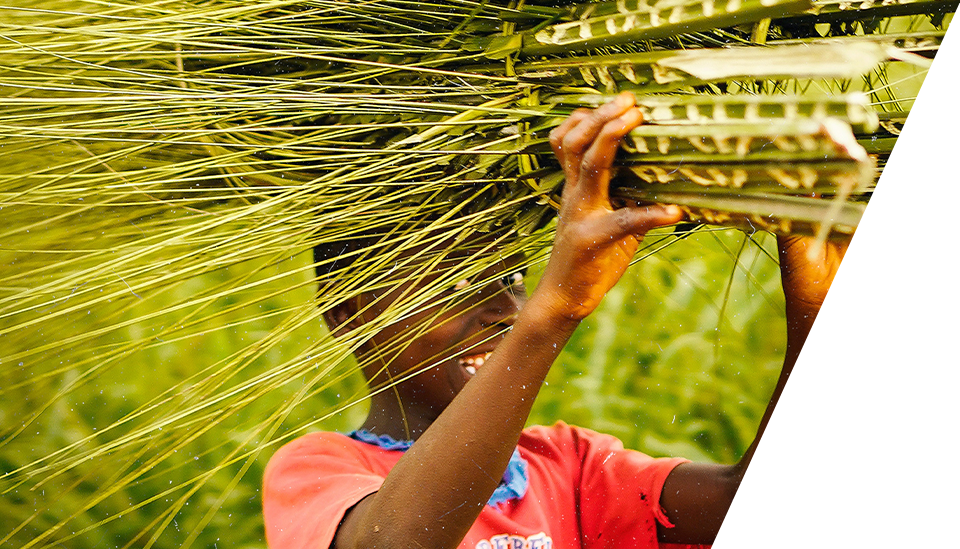How ECOWAS Parliamentarians are Advancing Gender Equality in Agriculture
The ECOWAS Parliament launched its first parliamentary network focusing on gender equality in land, agricultural investments and food security, with support from the Food and Agriculture Organization (FAO), the International Institute for Sustainable Development (IISD), and OXFAM.
His Excellency Moustapha Cissé Lô, the speaker of the ECOWAS (Community of West African States) Parliament, explains why ECOWAS members are establishing this network.
Why have the members of the ECOWAS Parliamentarians created the network on gender equality and investments in agriculture and food security?
The ECOWAS Parliament has a crucial role to play in contributing to the development processes of its member countries and in addressing critical issues that affect its constituents. All the West African countries depend highly on agriculture for their development, trade and integration. Therefore, we need to ensure that the needed investment into the agricultural sector contributes, among others, to job creation and access to markets, and that it supports infrastructure without jeopardizing smallholder farmers and entrenching gender inequality further.
ECOWAS countries have been tasked to enforce gender-friendly and inclusive agriculture laws to increase production and improve value chain to achieve Africa’s Zero Hunger target by the year 2025. The ECOWAS Parliament recognizes and took commitments to close the gender gap and enhance women’s participation in development as a key component for building a just society and achieving political, social, economic, cultural and environmental security among our people.
The parliamentary network will build on these commitments. It seeks to provide a consistent high-level discussion and policy building space among stakeholders in advocating for an increase in and exchange of “best legislative practices” related to gender equality, responsible investment in agriculture and food security.
What’s different about this network?
We want to address gender and social inequality in agricultural investments and promote best practices to protect land rights and facilitate inclusive local development.
This is why the network’s vision is to foster inclusive and gender-equitable agricultural investment in the ECOWAS countries conducive to food and nutrition security and poverty reduction. The network will provide a platform for parliamentarians in the region to learn from each other, share experiences, challenges and successes on matters of gender, land, agriculture and food security.
By maintaining policy dialogue and forming alliances with the ECOWAS Commission, international organizations, academia, civil society and farmers organizations, the network will encourage its members to engage in effective legislation and policies and raise awareness that contributes to transformative change at the regional and country levels.
What are the expected outcomes of the network?
The network is a game changer in the region as it looks to deepen understanding on the trends and responses to address land and inequality for women in agriculture.
It also seeks to engender agricultural investment for improved land governance and food security in Africa. The network will also enrich the conversation on securing women’s land rights in Africa among parliamentarians in the region. This will further be reflected by the legislation that members of the ECOWAS Parliament push for within their national assemblies for the benefit of secure, inclusive and gender-conscious investments.
What’s next for the network?
The network is set to be launched on December 11, 2018, on the sidelines of the second ordinary session. The network is an initiative of the ECOWAS Parliament and will be supported by organizations that share in the vision of the network: FAO, IISD, OXFAM and Women in Law and Development in Africa (WiLDAF).
The network, together with its partners, will agree on an activity plan to improving the network’s efficiency and articulate its potential to realize its target. Additionally, the ECOWAS Parliament will define mechanisms and structures related to the function of the network and elect members of the Bureau of the Network. The network will also engage with continental bodies, experts from the region and beyond, and other likeminded institutions and agencies.
The network provides a great opportunity for the ECOWAS Parliament to engage on critical issues and take the lead in defining the regional priorities.
This article was originally published on the International Institute for Sustainable Development (IISD) website, here.

